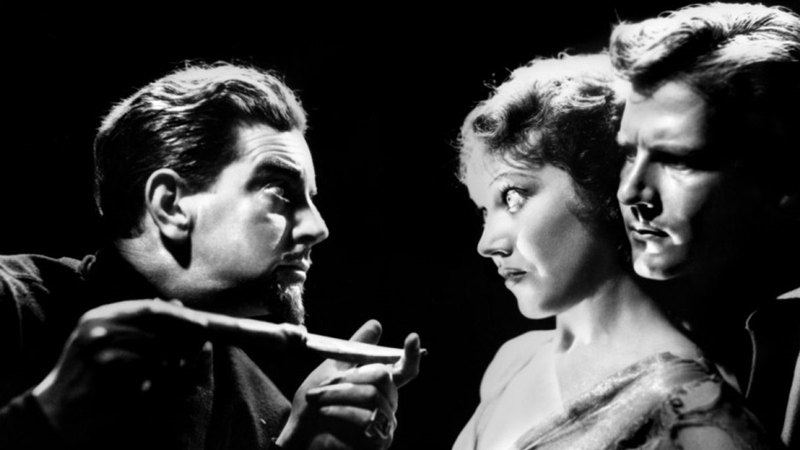When I noticed that “The Wise Kids” was a Christian-themed drama involving Southern Baptist teens, I assumed it was the work of Sherwood Pictures—the film ministry offshoot of the Sherwood Baptist Church in Albany, Georgia that’s produced such proselytizing films as “Flywheel” (about a used car salesman who is born again) and “Facing the Giants,” a similar film set in the world of high school football.
But as I watched, I was made instantly uncomfortable that the religious content seemed to be at saturation level —something that never happened with a Sherwood film. Early in “The Wise Kids,” scene after scene was overflowing with prayers and Jesus talk, whether it was the teens or the adults that were onstage—and it wasn’t just because they were rehearsing a Passion Play. Young people spoke about how much Jesus meant to them, asked to be guided by him, and couldn’t go through a single conversation, it seemed, without mentioning God.
That was the first tip-off that “The Wise Kids,” though also set in Georgia, might be the work of another production company. After all, the Sherwood M.O. was to depict average people leading average lives but struggling and finally turning to God in prayer in order to find respite or renewal. Here, no one’s life was going down the toilet . . . but they sure talked a lot about God and displayed the sort of billboard serenity the Flanders exude in “The Simpsons.” And while I may be sensitive to all the God talk and prayer, in my defense, Jesus DOES tell his followers to pray in secret and not in public like the Pharisees (Matthew 6:5).
Then, around the apex of the second act, comes a head-snapper: the minister and his wife are shown getting drunk and having sex. HUH? And one of the young characters turns out to be gay and is still accepted by his single dad . . . and he’s not even in “Glee”! This was definitely not a Sherwood production, I thought. What’s more—and I don’t mean to belittle the other performances—the quality of acting in “The Wise Kids” is far superior to what I’ve seen in other Christian-themed films.
It’s as if “The Wise Kids” was made for Christian youth to show that not everyone is perfect, not everyone believes steadfastly and not everyone is shunned or damned if they don’t. “The Wise Kids” is a film that embraces humanity as much as it does religion, without pushing Christianity as obviously as the Sherwood films. I didn’t feel as if the film was trying to convert me, in other words, or to preach a sermon. That’s because the characters weren’t used as examples to show how good is rewarded and evil punished, or how prayer works instantly. “The Wise Kids” isn’t that black and white, or that facile, and it proves that not every Christian film has to be a thinly disguised homily.
That gray attitude and an acceptance of the gay character probably accounts for why “The Wise Kids” is being distributed by Wolfe Video, one of the biggest sources of LGBT films.
This 2011 drama from writer-director Stephen Cone—whose Cone Arts also produced the film—features mostly believable dialogue, despite the heavy emphasis on religion. Then again, he’s got some pretty charismatic actors to work with. Molly Kunz plays the lead character, Brea (pronounced “Bree”), who is heading off to college and clearly one of the brightest kids in her church. As bright kids and adults are apt to do, she asks questions about everything—religion included. She begins to Google phrases like “Bible contradictions,” “religions before Christianity,” and “stories of immaculate conception,” and those walls of certainty and ethnocentricity begin to break down.
“Ever wonder what we’d believe if our parents didn’t teach us their beliefs?” Brea asks her friend. “They could have taught us anything.” Implied is an important truth: that the difference between faith and blind faith is like the difference between an opinion and uninformed opinion. If you don’t question, if you don’t study, if you don’t come out at the end of the existential tunnel with a beacon that seems to shine directly on you, you’re only parroting the faith of others. But when Brea asks the pastor’s wife if she’s ever had questions and begins to open up even more, Elizabeth (Sadieh Rifai) quickly shuts her off. “I guess I realized that God is bigger than my questions,” she says. “What does that mean?” Brea asks. “Don’t think so much,” Elizabeth says.
I think that’s what they tell you in cults right before they hand you the glass of Kool-Aid. But to this film’s credit, Brea is allowed to have her crisis of faith, and she doesn’t really get an answer—the implication being that this might take some time, or it might not even happen. Who knows? “What would you think if I stopped believing in God?” she asks another friend.
Brea’s uncertainty is balanced by Laura’s (Allison Torem) joyful noise—her complete and utter acceptance of everything the church teaches. She’s portrayed as someone who isn’t the brightest bulb in the vanity but who’s earnest and sensitive about people thinking she’s not smart. But she’s an absolutist. “If you just pick and choose what you want out of the Bible, what does it mean?” That is, what value does the Good Book have if you grab it here and there to suit your purposes and conform to your existing beliefs and patterns? She’s the one who deliver’s the film’s core message to Christian youth who might be watching. “Don’t leave it lightly,” she tells Brea, “it’s so beautiful and it’s so true. Just promise me you won’t leave it lightly.”
Brea’s other best friend, Tim (Tyler Ross), isn’t having a crisis nor is he happily entrenched in belief. He’s just sort of easy-going, smiling all the time and not saying all that much about why he wants to go to film school in New York—other than the fact that he represents the child who leaves a tightly knit religious community, the one whom everyone worries about in the big bad world because he seems so innocent and frail. His focus is on his own identity—the fact that he’s gay, and gay enough so that an adult we all think is straight comes on to him.
“The Wise Kids” is a slice-of-life film that tries hard to focus on character, but doesn’t quite get the concept of 3-dimensionality. We only see the characters as they talk about God and interact with each other at church, or with family or other churchgoers. Subplots are shallow. No one seems to work or have any contact with people other than those who share their beliefs, and writer-director Cone seems to make the classic all-or-nothing assumption about faith: that either you buy the whole package and you commit to the brand of Christianity that these people practice, or you don’t believe in God at all. Of course, it’s possible to believe in God and not organized religion. Many people do. But one gets the feeling as Laura’s words resonate—“Don’t leave it lightly”—that Brea is left to choose between two extremes, just as the minister (played by Cone) and his wife seem to be left with two choices: abstain from alcohol, or get fall-down drunk.
Those flaws aside, “The Wise Kids” still manages to do a lot of things right for a faith-based film.
Video:
According to the Internet Movie Database, “The Wise Kids” was shot using a Canon 5D Mark ii digital camera, and it looks great. Presented in what appears to be a 1.78:1 aspect ratio, it features natural skin tones, bright colors, and incredible detail and edges for a DVD.
Audio:
The audio is either an English Dolby Digital 5.1 Surround or a 2.0 track, with a closed captioned option. Dialogue is clear, and there’s no distortion. There’s plenty of ambient sound, too, but not so much that it gets in the way.
Extras:
On two short bonus features Cone appears on camera talking about the film, with his interview segments intercut with behind-the-scenes footage. “Behind the Scenes of The Wise Kids” runs 13 minutes, and “Religion and Sexuality in The Wise Kids” (which confirms that Cone wasn’t making a “message” or “God’s eye” film, but rather a humanist look at a small group of individuals) runs 11 minutes. The only other bonus features are the trailer and additional trailers for Wolfe Video releases.
Bottom line:
Religion may permeate this film, but it does so because it permeates the characters’ lives. “The Wise Kids” features some nice surprises and some solid acting and editing.


